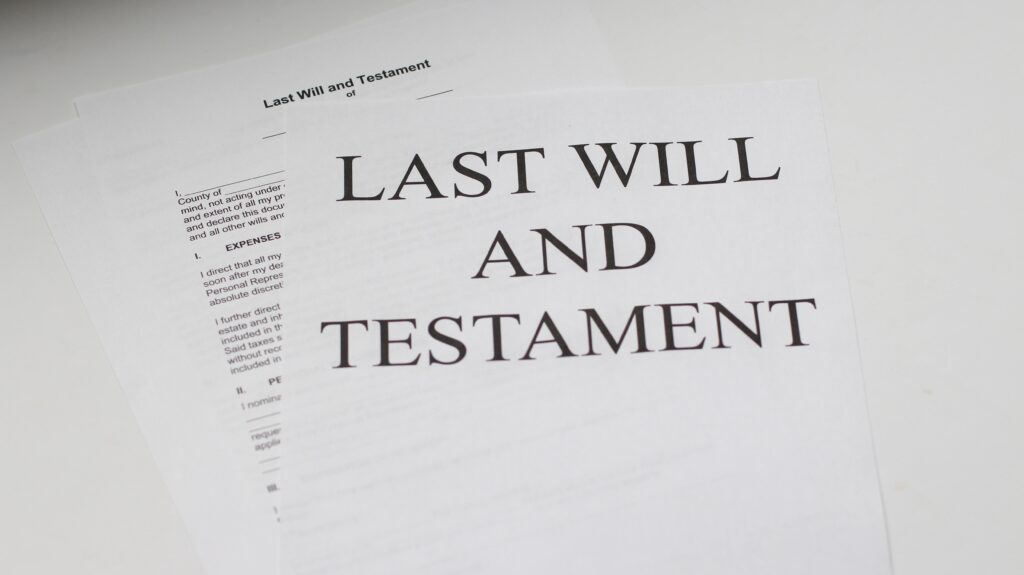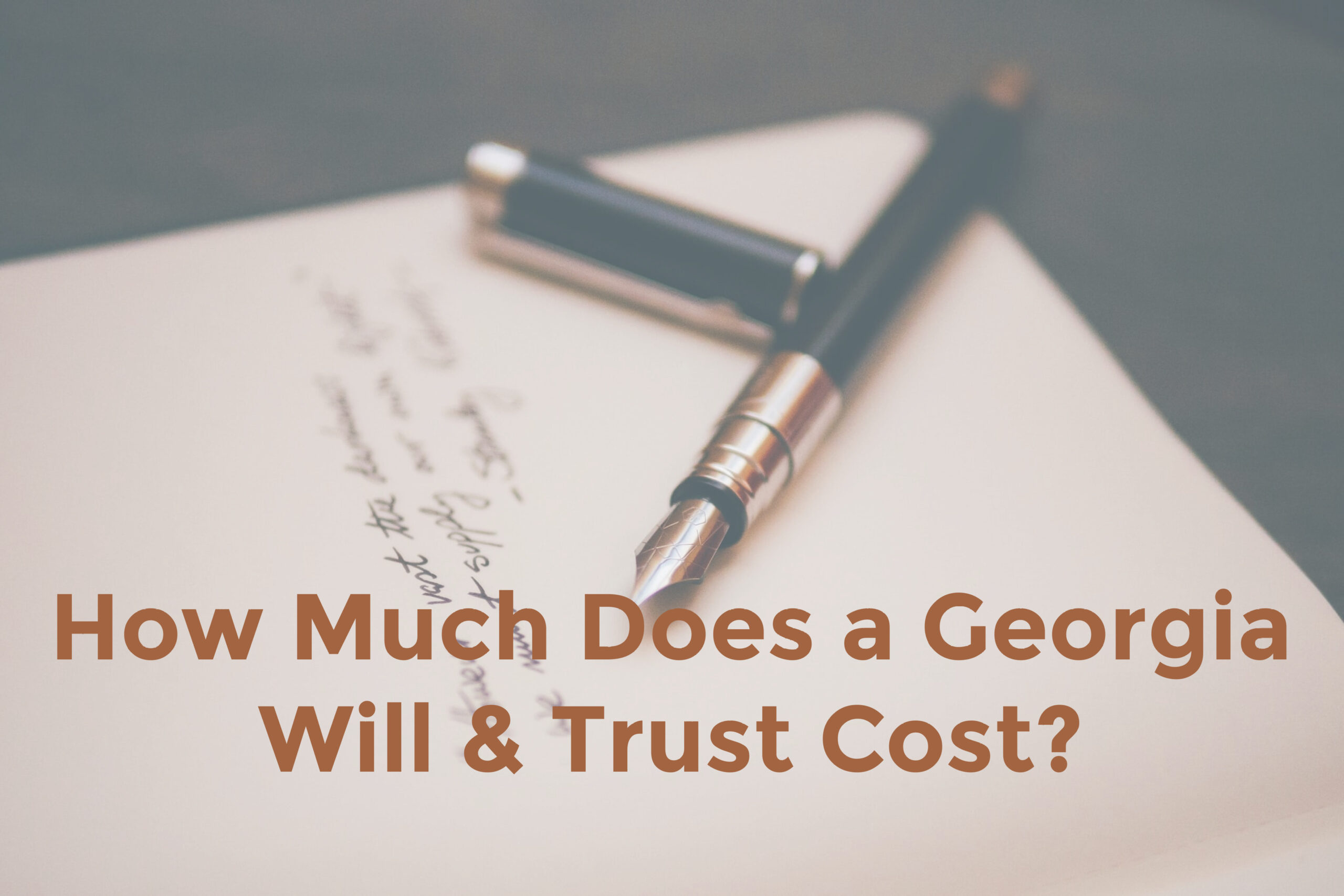Is there a way to plan for the future without breaking your budget?
Fortunately, the cost of a Georgia will and trust is worth every penny.
Estate planning isn’t everyone’s idea of a good time but, here at ProPrudence, we’ve spent a lot of time thinking about it in order to better serve you.
Perhaps you haven’t given your estate plan much thought or perhaps you’ve overheard your friends talking about it recently. If you’re one of the last ones to jump on the estate planning bandwagon, you’ve probably been wondering, “What exactly are they talking about?”
It is always a good choice to plan for your future and to consider your legacy. No matter where you live, what you own, or how old you are, creating a will or trust (or both!) is an important life milestone.
In this article, we’ll go over the basics between a Georgia will and a trust, their average cost, and why you absolutely need to have at least one of them.
What Is a Will?
A will is a written document expressing your wishes after your death.
Wills can (and should) cover a variety of different areas and be as detailed as possible, so that a judge can accurately determine your intentions.

Your will can be used to:
- Name your executor (i.e. the individual responsible for handling your estate),
- List your assets and debts,
- Choose how to distribute your assets and property,
- Disinherit your spouse and/or children,
- Appoint a guardian for any minor children,
- List your wishes for your funeral/burial arrangements
You may add to, edit, change, or revoke your will as many times as you wish during your lifetime, as it won’t become active until your death.
One of a will’s biggest drawbacks, though, may come as a surprise to most people. After your death, even a valid will must pass through probate court and can be contested by your surviving relatives. During probate, the contents of your estate become public record and your estate will diminish some to pay for attorney/court fees.
What Is a Trust?
A trust is a legal entity (similar to a corporation) that appoints a trustee to hold and control assets for the benefit of a third party (known as the beneficiary).
While you probably think of them as being only for rich people with a summer home in the Hamptons, anyone can create and benefit from a trust.

Trusts can be used to:
- Avoid probate,
- Avoid paying income or estate taxes, and
- Control assets on behalf of the beneficiary.
This last feature is especially helpful if you have dependents that may make poor financial decisions with a lump sum inheritance.
For example, let’s say that Chad Wellington III is concerned about how his son, Skip, will handle his estate after Chad’s death, because of Skip’s reputation as a partier who spends ludicrous amounts of money.
To ease his fears, Chad decides to establish a trust naming his wife, Missy, as the trustee and Skip as the beneficiary. This arrangement allows Skip to benefit from the cash, investments, and property held in the trust but he cannot (and should not) manage them.
You can create either a revocable trust, which can be changed as often as you’d like, or an irrevocable trust, which cannot be revoked.
Another major benefit to trusts is that they avoid probate and cannot be contested. (Testamentary trusts—created from a provision in your will—must go through probate to become active.)
Why You Need a Georgia Will and Trust
Wills and trusts may sound pretty complicated, but that’s no excuse to keep your head in the sand.
Without a plan for your estate, Georgia courts will determine what happens to your property and even who is awarded guardianship of minor children. In Georgia, this usually means that your children and spouse will share everything. If you don’t have a spouse or children, your parents or siblings will receive your inheritance.
If you have any specific wishes regarding your belongings, a will or trust is the only way to ensure that those wishes are followed.
If you don’t have specific wishes for your property, an estate plan can reduce the amount of time your estate spends in probate (or, in the case of a living trust, avoid probate altogether). Your surviving family members will certainly appreciate having time and space to grieve your loss instead of dealing with probate.
Fortunately, you can have both a will and a trust. If you have minor children, you will need a will, as trusts cannot establish guardianship over minor children. On the occasion that your will and trust contradict each other, your trust will usually trump your will.

How Much Does a Georgia Will and Trust Cost?
For a Georgia will or trust, the average cost is between $300-600, but the amount you spend depends on how complex the document is and whether you use a template or an attorney.
Again, this is an average. Your attorney may charge more or less. Some attorneys may work from a template. Others may prefer to write up the documents themselves.
Generally, simple wills and trusts formed from templates will be cheaper than complex documents written by an attorney. However, when it comes to your estate plan, budget should never be your only concern.
Your final wishes are too important to blindly trust with an online template. Instead, your needs should always come first. If you want a compromise between budget and a thorough job, you can use an online template and have it examined by an attorney.
Conclusion
If you’re like most people, you’ve probably given at least a passing thought to what you want to happen to your property after you pass away. But unless you’ve created an estate plan, your hopes and wishes won’t matter at all.
Having a will or trust ensures that your wishes will be carried out exactly as you want them to be.
If you’re looking to create a Georgia will or trust, let ProPrudence connect you with an estate attorney. Our proprietary software will allow you to video chat with an attorney 100% free of charge so you can make the most informed decision possible.





